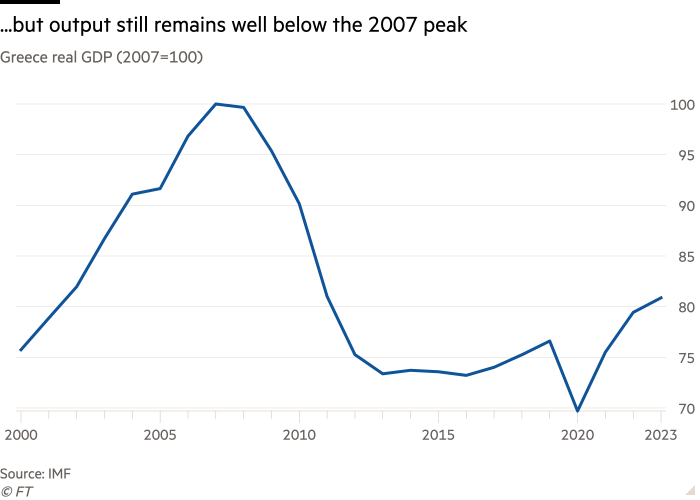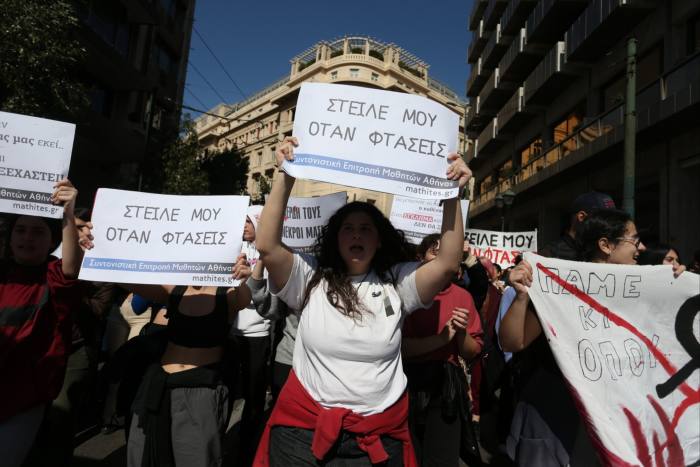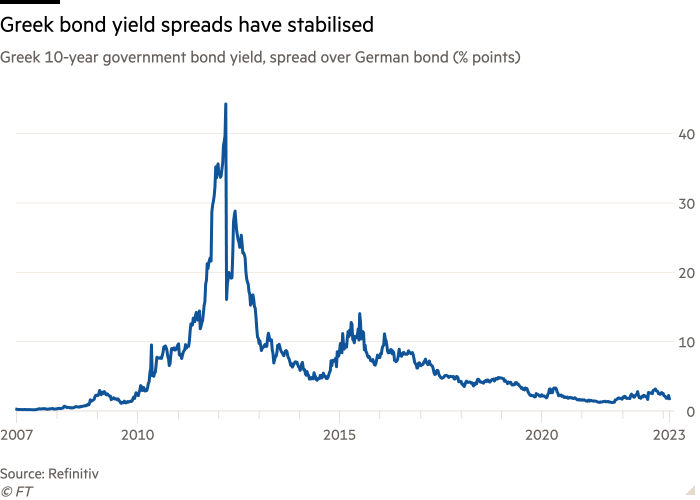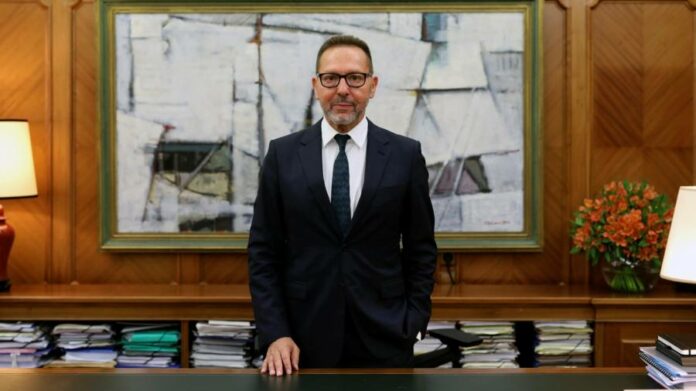Greece is on the cusp of regaining its investment-grade credit rating after 12 years in the junk-bond wilderness, its central bank governor Yannis Stournaras has said as he urged the country’s next government to maintain fiscal prudence.
Stournaras told the Financial Times that he was “confident” that credit rating agencies would upgrade Greek bonds within months, should lawmakers signal their intent to maintain reforms and take advantage of a “window of opportunity” to significantly lower the country’s debt burden.
“We think that 2023 is the year will get the investment grade,” Stournaras said.
His comments come as the country gears up for spring elections, with the incumbent centre-right New Democracy party leading in the polls. The party has signalled that it will continue to carefully manage the public finances.
Stournaras said the most likely timing of the upgrade was “immediately after the election”, but that it could even come before the vote takes place.

Greece lost its investment-grade status in January 2011 after its economic crisis threatened to break the eurozone apart. Its ratings fell as low as CCC-, before recovering to BB+ — one notch below investment grade — as the country’s economic recovery gathered momentum.
The country managed to shave more than 24 percentage points off its debt-to-GDP ratio last year alone, with its economy expanding by just over 5 per cent over the course of 2022.
“A few years ago, few people expected Greece to remain in the eurozone. Now, not only does it remain, but it performs better than the eurozone average,” the governor said.
Stournaras, who has headed the central bank since 2014, warned that this “benign [economic] cycle” must not be squandered and called on the government to make some desperately needed investments in the country’s battered infrastructure following a railway crash that has claimed the lives of at least 57 people.
“Greece has managed to correct macroeconomic imbalances and improve price and wage competitiveness, but structural competitiveness remains low compared to other eurozone members,” he said. “The country’s infrastructure and the modernisation of the public sector remain an issue.”

Despite the gains of recent years, Greece still holds the highest debt load in the eurozone at 170 per cent of its output.
Under the terms of its bailout, official creditors took on a large chunk of Greece’s debt, while charging relatively low interest rates for the government to service it up until 2032.
“We have a window of opportunity that should not be wasted,” Stournaras said. “We need to bring down the debt-to-GDP ratio to such a level that nine years from now, so the interest payments, which are now under grace period, will not create a new debt problem.”

Growth would also be lower this year, with higher interest rates expected to weigh on demand.
“A sustainable fiscal effort will be needed,” the former finance minister said, adding that it would not be easy for the government to go from a small primary deficit to a position of fiscal surplus by 2024.
High inflation would also dampen the economic outlook. Core price pressures — which exclude changes in food and energy costs, and are seen as a better gauge of underlying inflation — hit a fresh regional high of 5.6 per cent.
However, Stournaras, who sits on the European Central Bank’s governing council, flagged that headline inflation readings were much “better”, or lower, than rate-setters had anticipated in December due to a sharp fall in energy prices.
He would not pre-commit to specific further rate rises in an environment where headline inflation was declining. “That could lead to an increase in market confusion rather than limit it.”
His comments clash with the increasingly hawkish tone coming from many of his fellow ECB rate-setters.
Its president, Christine Lagarde, has said the central bank is “very, very likely” to raise its deposit rate from 2.5 per cent to 3 per cent at its meeting on March 16, warning “inflation is a monster that we need to knock on the head”.
Additional reporting by Martin Arnold in Frankfurt






